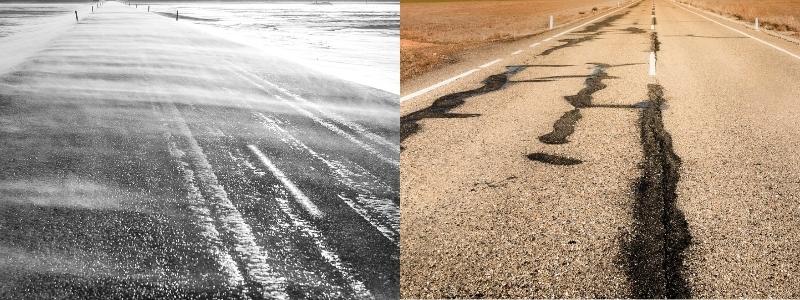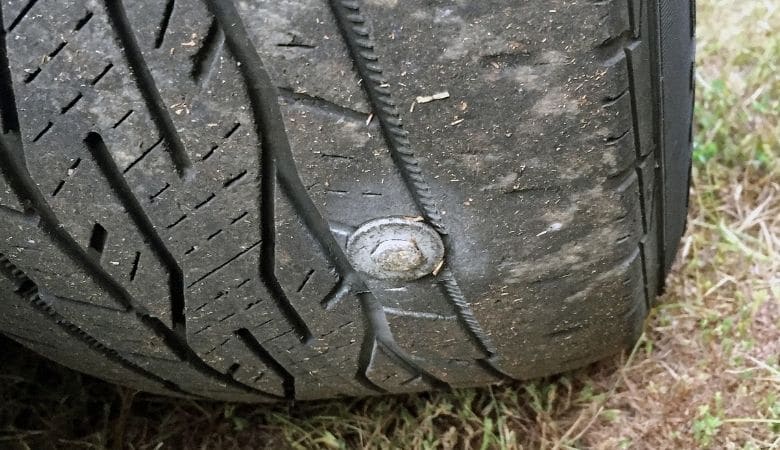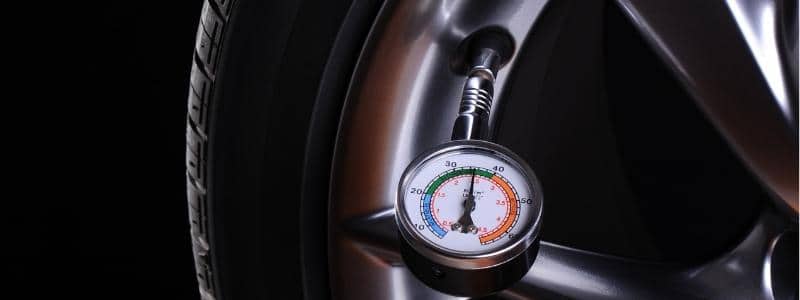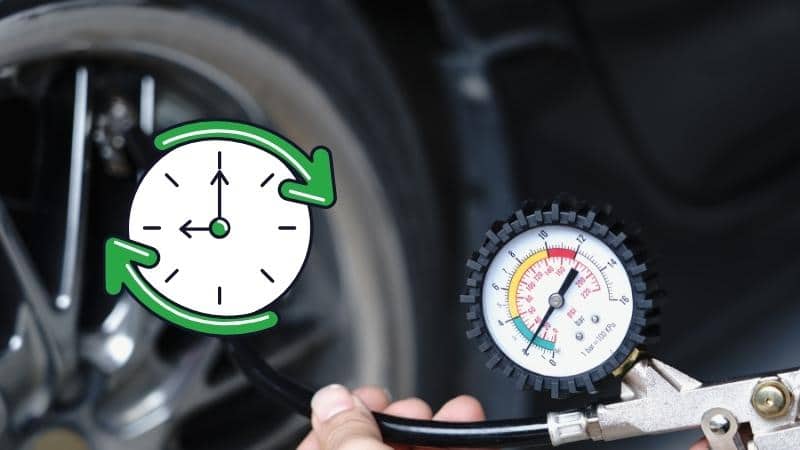Luckily, the days of wondering if your vehicle tires need air are gone. Most cars these days have a tire pressure monitoring system (TPMS) that warns you when it’s time to put air in your tires.
When that warning light comes on, the most important thing you can do for your trip is address the need right away and not let it linger. Driving your vehicle with low tire pressure can be dangerous and can hurt your gas mileage. So, how often should you fill your tires?
Various things affect your vehicle’s tire pressure, so you can’t really know how often you should fill your car tires. The general rule is to check your tire pressure at least once a month to know if you need to fill your car tires.
What Causes a Drop in Tire Pressure?
All vehicle tires lose air pressure over time. There are some normal and abnormal reasons why this happens.
Normal Reasons
1. Permeation
Even when your car is sitting idle, it has the potential to lose air. Air can pass through the structure of the tire rubber at a rate of one to three per square inch (psi) per month. The loss of air is determined by the make and model of the tire.
2. Change in Temperature

A change in weather can easily cause either air loss or inflation in your tire. Every a ten-degree change in the temperature can cause air loss at a rate of two percent.
That means on a given day when there is a twenty-degree change in temperature from morning to night, you could lose about four percent of the air in your tires.
Abnormal Reasons
1. Wheel Part Damage
There are a couple of ways parts to the wheel can damage and cause a problem with tire pressure: 1) poor valve stem or 2) a bent/damaged wheel.
The valve stems may deteriorate and cause air loss, so it’s recommended to change these whenever you buy new tires.
As for a bent or damaged wheel, it will not hold the tire tight on it if it has partially lost its round shape. Thus, it’s easy for air to seep out.
2. Tire Damage

Some of the most common kinds of damage likely to cause an air leak in your tire are nails, bead damage, and other road-hazard-related damage.
A nail in the tire can let out about two to three psi daily. It could eventually cause a blowout if left unattended.
Even the smallest space from the chunk of rubber in the bead area makes car tires lose air over time. Chunking develops with age, so it’s important to know the date your tire was manufactured.
Other things are liable to happen as you’re driving, like hitting a pothole. That could damage the tire, causing loss of air over time. That is why it’s always a great idea to check the tire pressure after any minor accident or curb/pothole hit.
Why is Tire Pressure Important?
Your vehicle’s tires are very important aspects of your transportation. Few people realize that it’s the air inside the tire that’s carrying the vehicle.
That makes the air’s role in what your vehicle does a lot more serious than you may think. From accelerating to braking to steering, much of what your vehicle does is a result of the fitness of the tires.
So, if your tires are underinflated, with not enough air pressure, the car’s handling and performance will be affected, the tires won’t last as long as they should, and you won’t get as much gas mileage as you should for your money.
The worst-case scenario is that you could have a serious accident. While not having enough air in the tire can be problematic, overinflating or having too much air, can be just as bad. It can cause some of the same issues.
How Often Should You Check Your Vehicle Tire Pressure

Just because you have a TPMS, doesn’t mean that you don’t have to be concerned with checking your tire pressure. Because tire pressure can change in the winter, it’s important to check the status of the air pressure at least once a month during the cold-month seasons.
Although the heat can cause your tires to expand, the impact is not as severe as the colder month seasons. Still, it is a good idea to check the status of your tire pressure at least once a month during the warmer seasons as well, just to be on the safe side.
With the various effects (stated above) that cause your tire to lose psi, it’s worth checking your tire’s air pressure on a regular basis.
If you are wondering what the signs of low tire pressure are, check out this post next.
Tips to Maintain Proper Tire Inflation
Since it is hard to know how often to fill your car tires or how long air lasts in your tires, here are some tips to keep you properly inflated:
- Check tire pressure regularly: Checking your tires regularly is a great habit to have. Whether it’s once a week, bi-weekly, or monthly, getting into the habit of checking your tires, regardless of warnings or changes in weather will keep your car rolling long and your tires in good shape. It’s recommended to check your pressure at least once a month, so doing that falls within the realm of safety.
- Check air pressure on cold tires: It’s recommended to check your tires’ air pressure when they are cold or when they haven’t been rolling for at least two hours. If you check the tires after more than 15 minutes of driving, take one to two psi from the reading.
- Calibrate your pressure gauge: Get your pressure gauge calibrated to ensure accurate readings. Some gauges can show +/-3 psi before it’s even calibrated.
Most tires recommend a psi of 30 to 40. When checking your air pressure, if it’s not within that range, you should be concerned.
To know what the psi should be for your tires, check your manual or the inside jamb of your driver’s door. Always be in the know to know if you should fill your car tires.
Hi, my name is Niklas, the head content creator & CEO of Whirling Wheelz. I am very interested in vehicles of all kinds, mainly cars. I have a car mechanics degree from high school and a big hobby of mine is to follow the WRC (World Rally Championship) both online and through travel.


